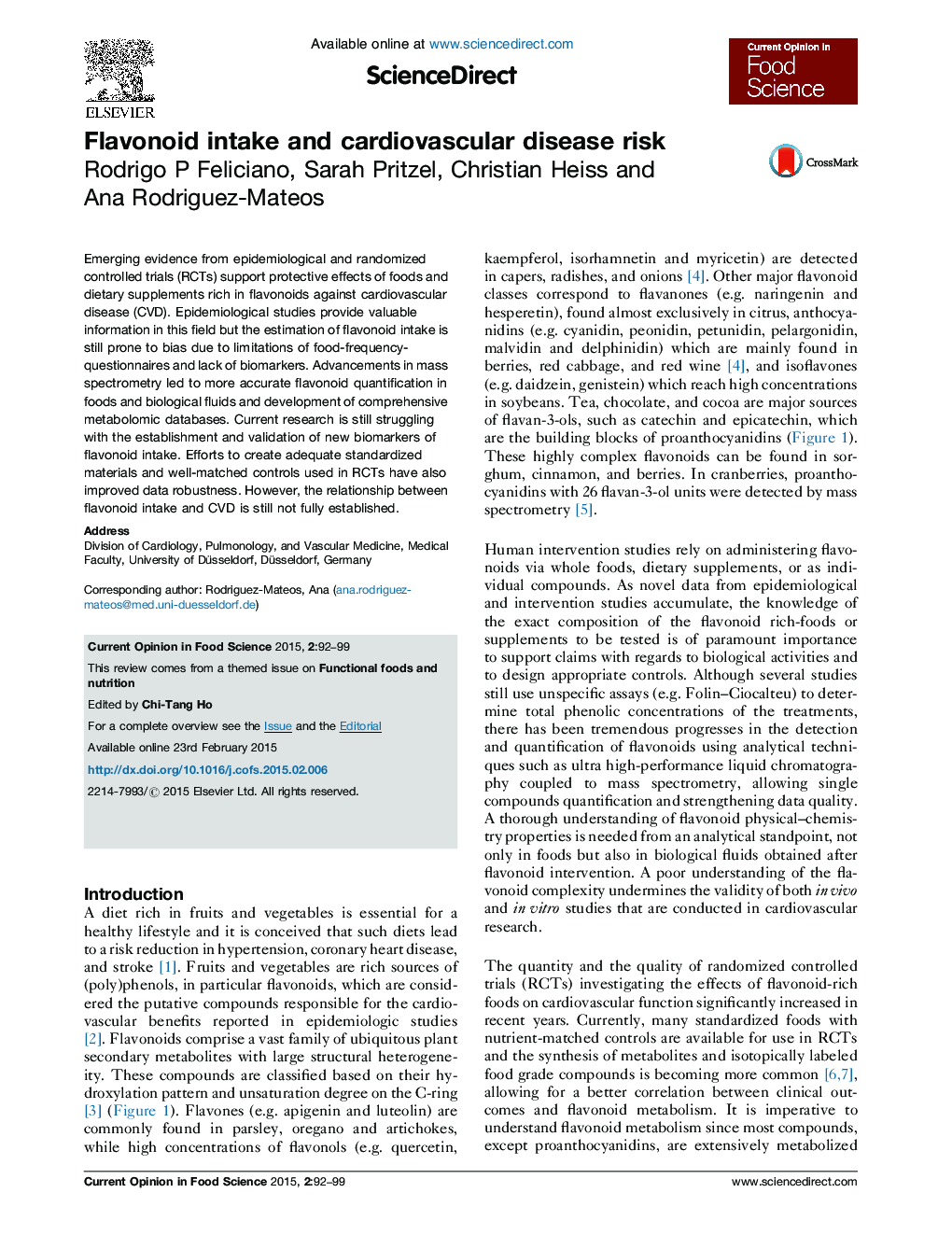| Article ID | Journal | Published Year | Pages | File Type |
|---|---|---|---|---|
| 2079785 | Current Opinion in Food Science | 2015 | 8 Pages |
•Higher flavonoid intake in the diet is associated with CVD risk reduction.•Further epidemiological studies with suitable biomarkers of intake are necessary.•Clinically, evidence is still lacking on the role of most flavonoids in CVD.•Cause–effect relationships between flavonoid intake and CVD need to be established.
Emerging evidence from epidemiological and randomized controlled trials (RCTs) support protective effects of foods and dietary supplements rich in flavonoids against cardiovascular disease (CVD). Epidemiological studies provide valuable information in this field but the estimation of flavonoid intake is still prone to bias due to limitations of food-frequency-questionnaires and lack of biomarkers. Advancements in mass spectrometry led to more accurate flavonoid quantification in foods and biological fluids and development of comprehensive metabolomic databases. Current research is still struggling with the establishment and validation of new biomarkers of flavonoid intake. Efforts to create adequate standardized materials and well-matched controls used in RCTs have also improved data robustness. However, the relationship between flavonoid intake and CVD is still not fully established.
